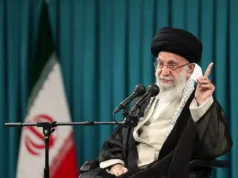The rift between the United States and Israel appears to be waning – or at least that’s what U.S. President Barack Obama wants the two countries’ populations to believe. President Obama, who snubbed Prime Minister Netanyahu just a few months ago, offered the Israeli leader a warm reception this week in Washington. The two spent almost 90 minutes discussing Gaza, Iran, the Nuclear Nonproliferation Treaty (NPT), and the peace process.
Both leaders praised their positive discussions, with Obama reaffirming the ‘unbreakable’ bond between the two countries, which only ‘continues to improve’ daily. But beyond the public comments made, there were some notable developments.
President Obama said he hoped that direct Israeli-Palestinian peace talks would replace the current “proximity” talks well before the end of September – which is when Israel’s moratorium on West Bank settlement construction ends. There can be little doubt that such a development would make Palestinian president Mahmoud Abbas nervous.

President Obama and Israeli Prime Minister Benjamin Netanyahu meet in the Oval Office, July 6, 2010. |
|
In a change from recent American actions, Barack Obama clearly explained in his post-meeting statement that he accepted Israel’s policy of nuclear ambiguity: “We strongly believe that, given its size, its history, the region that it’s in, and the threats that are leveled against us — against it, that Israel has unique security requirements. It’s got to be able to respond to threats or any combination of threats in the region. And that’s why we remain unwavering in our commitment to Israel’s security. And the United States will never ask Israel to take any steps that would undermine their security interests.”
In regards to the convening of an international conference on making the Middle East a nuclear-free zone, President Obama specifically promised Netanyahu that “the conference will only take place if all countries feel confident that they can attend, and that any efforts to single out Israel will make the prospects of convening such a conference unlikely.”
Nevertheless, the problem of prioritization remains an open question. From Netanyahu’s perspective, Iran remains the central issue affecting Israeli policy and decisionmaking. For Obama, the peace process, Gaza, and Iran all appear to share the same sense of urgency. Beyond prioritizing, there is the real question of what exactly will be accomplished in direct Israeli-Palestinian negotiations if the Palestinian Authority’s redlines have remained unchanged since 2000.





